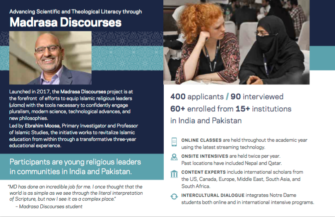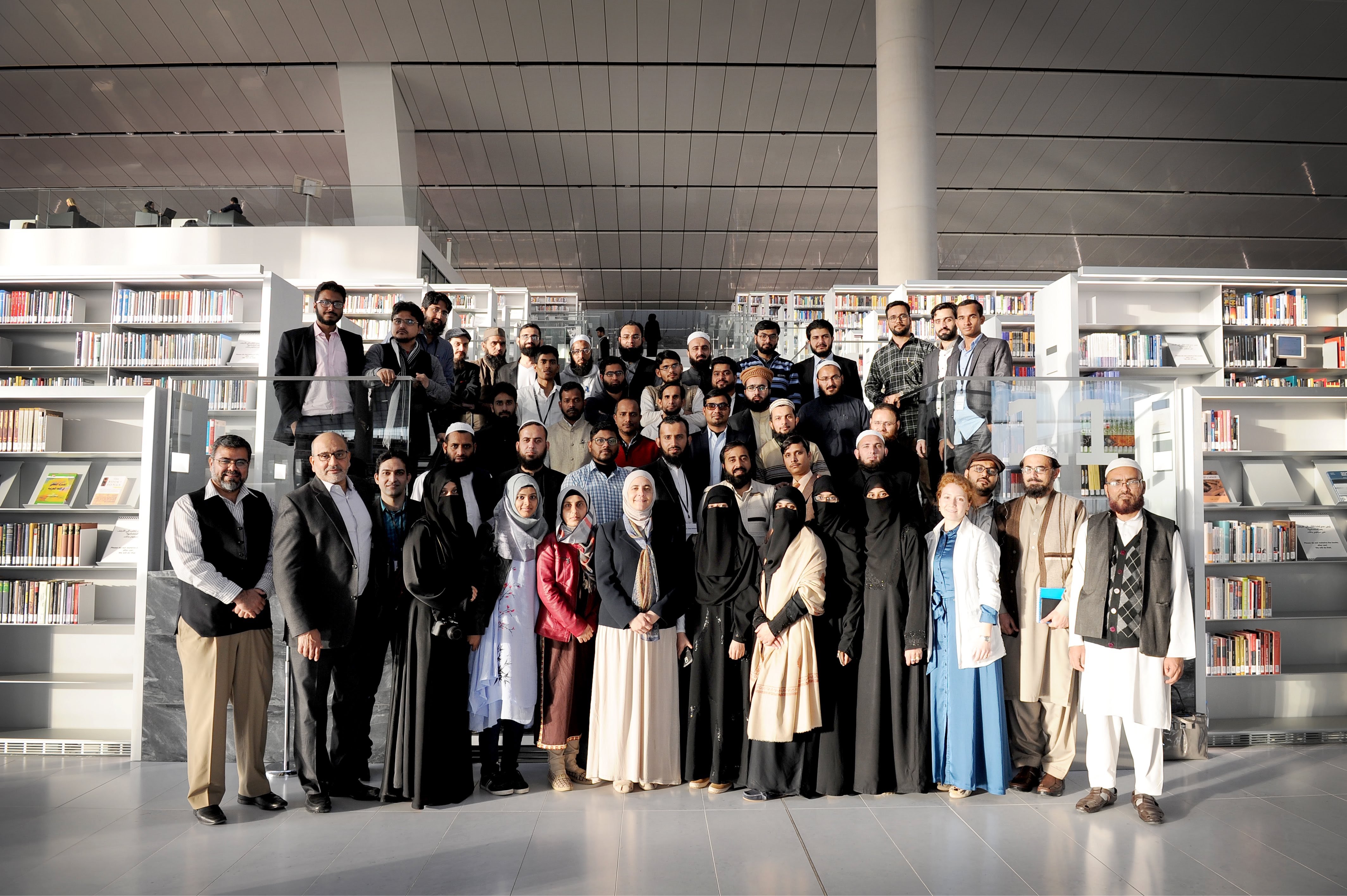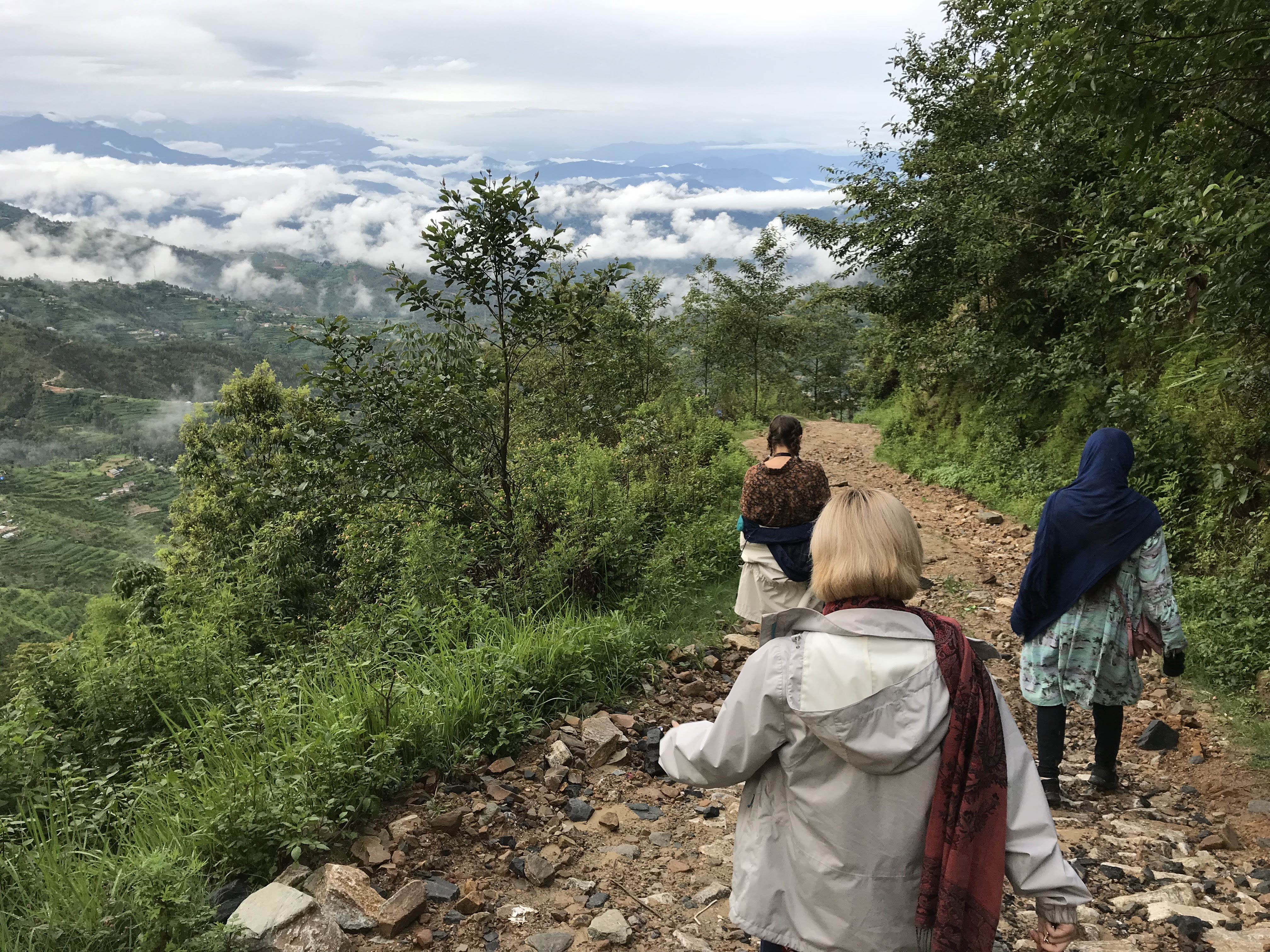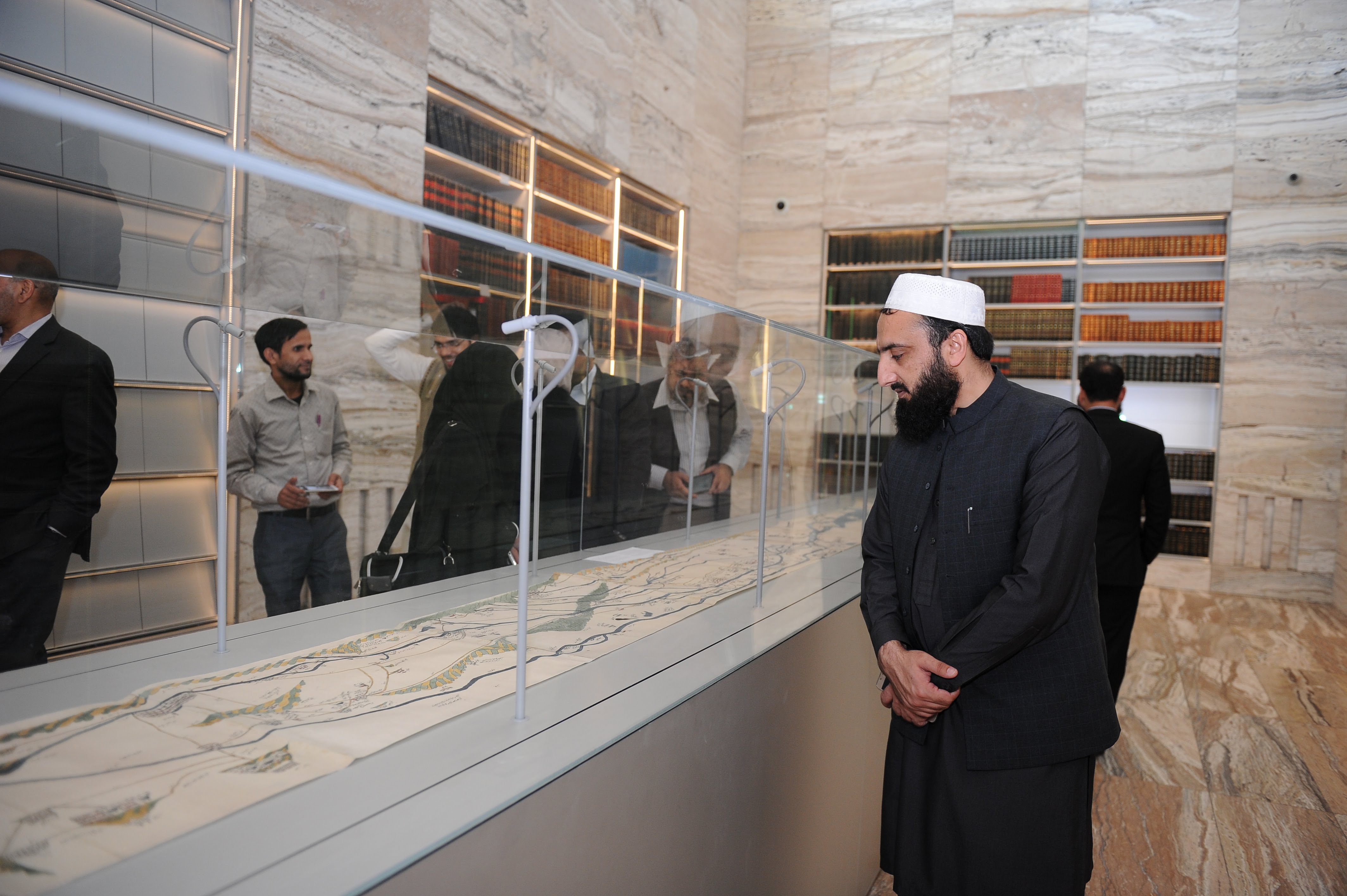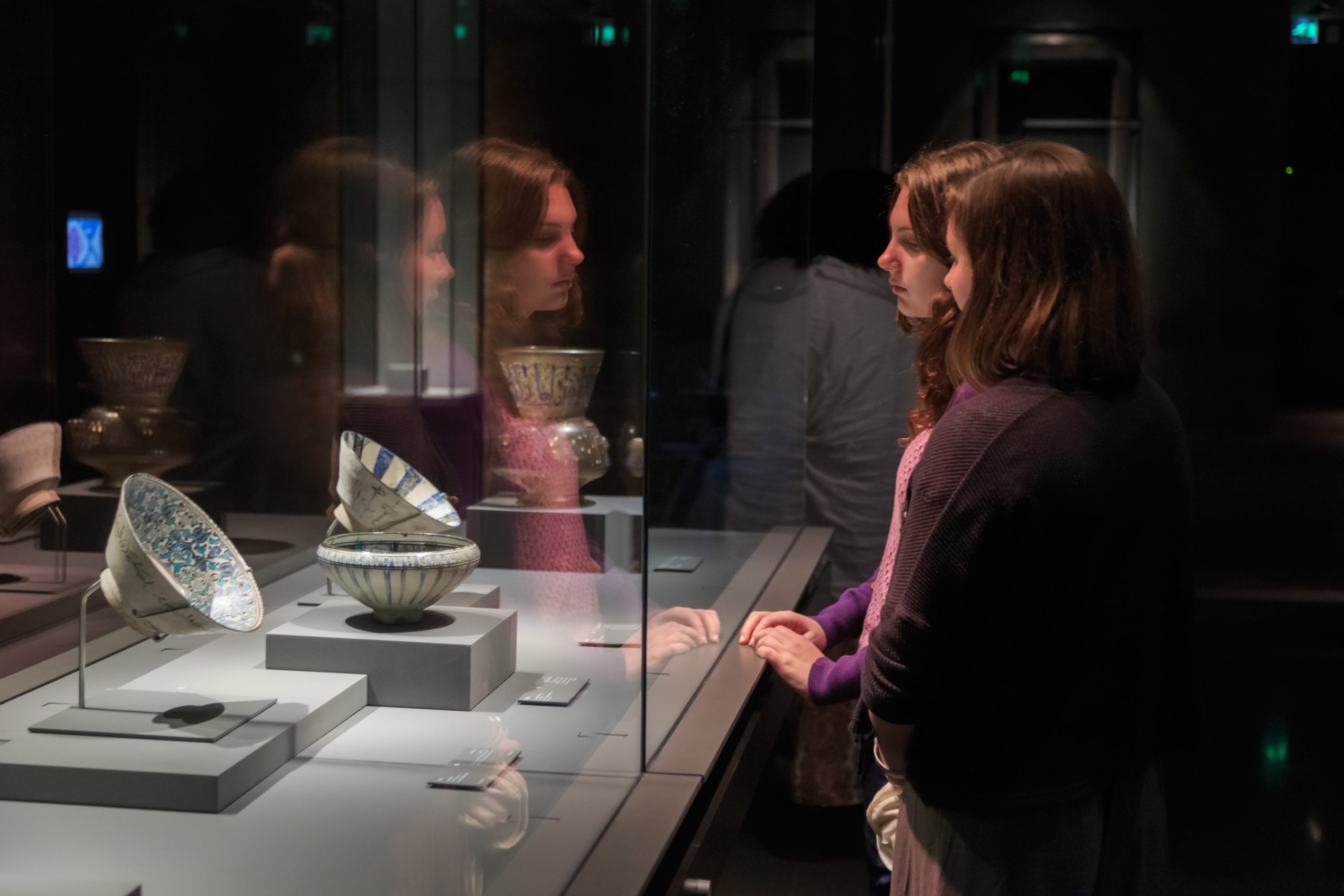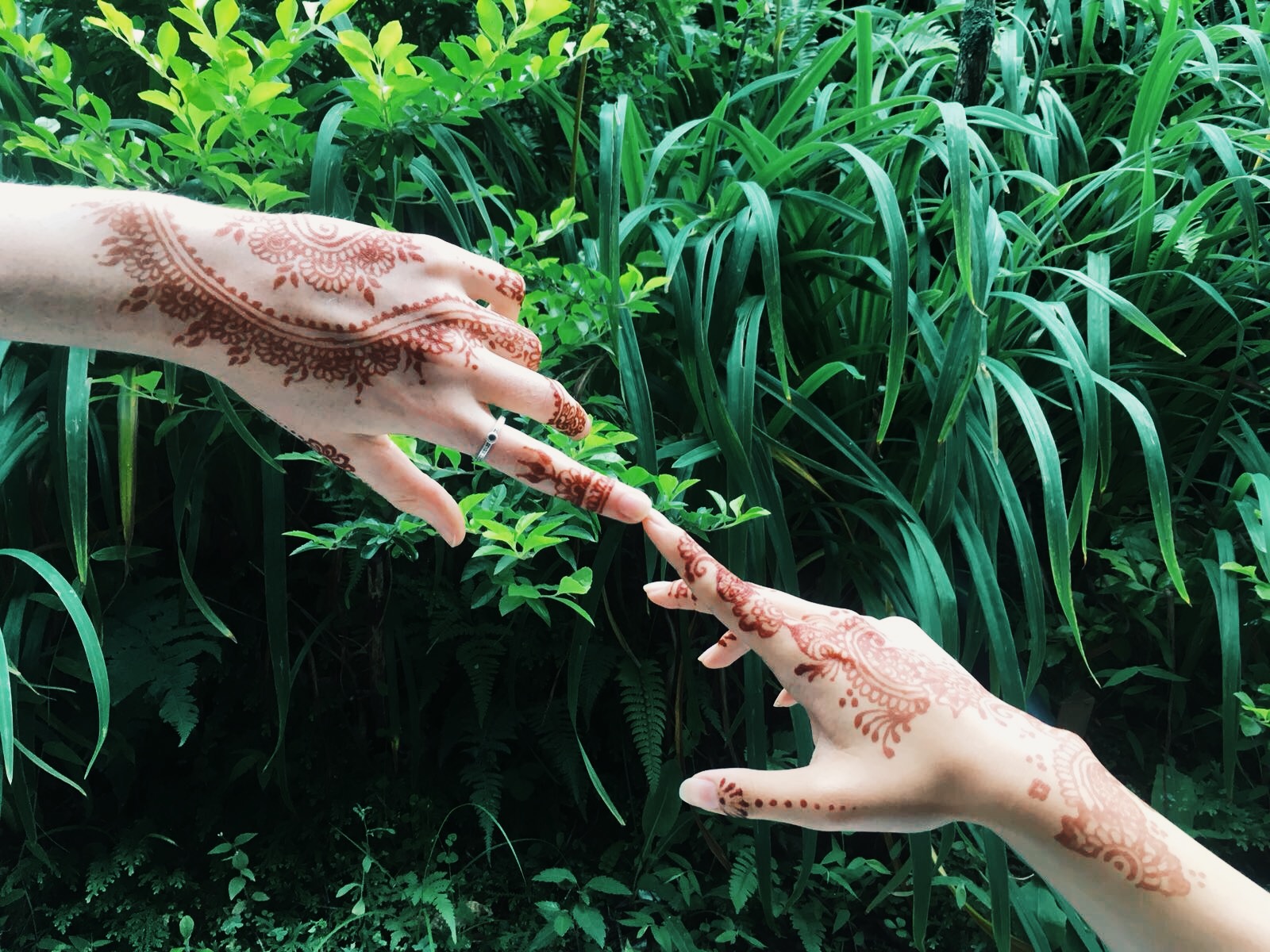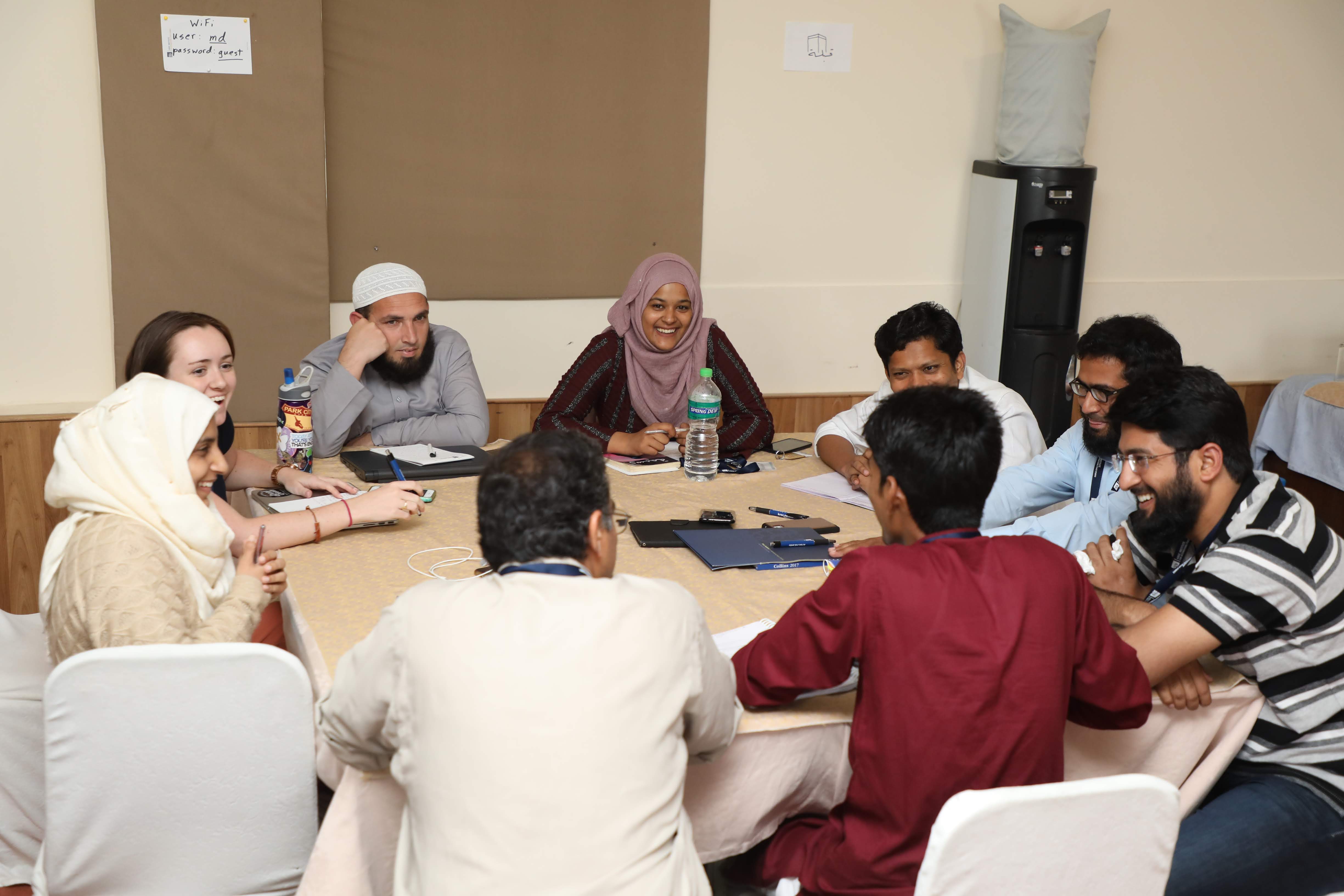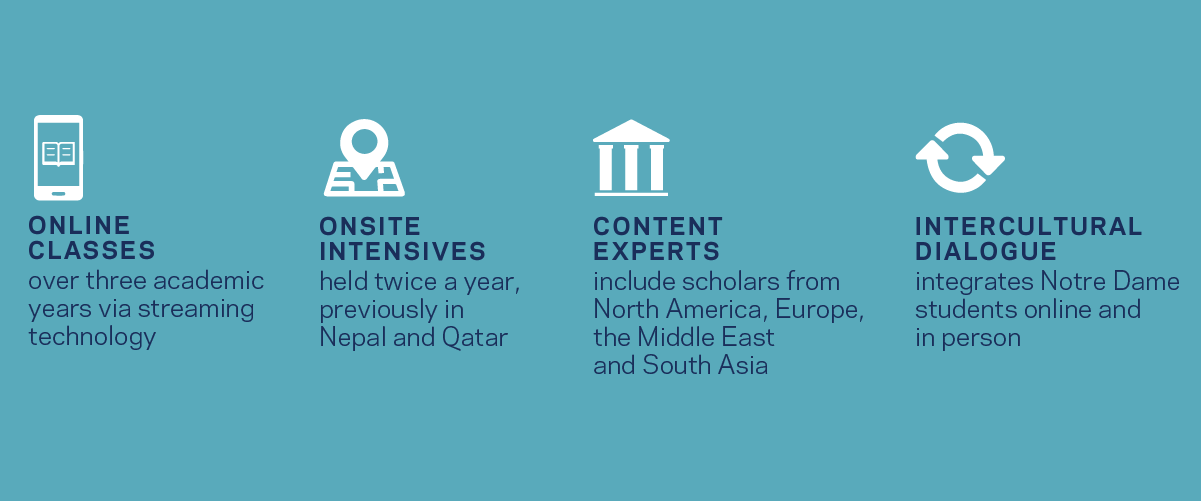Theological Literacy for Human Dignity
Since 2017 the Madrasa Discourses project has been at the forefront of efforts to equip Islamic religious leaders (ʿulamāʾ) with the tools necessary to confidently engage pluralism, modern science, technological advances, and new philosophies. Focused initially in India and Pakistan, home to over 300 million Muslims, the project has engaged over 100 young scholars, professors, and writers through deep interactive coursework and cross-cultural experiences. We believe that a conciliation of traditional Islamic thought with contemporary scientific and philosophical worldviews can result in orthodox affirmations of human dignity that are essential for peaceful coexistence.
Watch the feature below on Madrasa Discourses by the University of Notre Dame’s award-winning “What Would You Fight For?” series. Read the story here.
Meet the Team
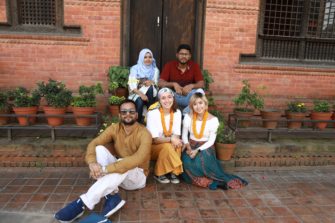
After years away from the madrasa where he studied in his youth, Dr. Ebrahim Moosa, Professor of Islamic Studies at the University of Notre Dame, returned to write his book, What is a Madrasa?. “It’s time to give back,” high-ranking madrasa scholars in India told him. “Help us prepare our students for the modern world.” With the generous support of the John Templeton Foundation, the Madrasa Discourses project was born.
The Madrasa Discourses project is led by Dr. Ebrahim Moosa and administered by Dr. Josh Lupo, based at the University of Notre Dame, Dr. SherAli Tareen at Franklin and Marshall College, Dr. Waris Mazhari, based in New Delhi, India, and Mawlana Ammar Khan Nasir, based in Gujranwala, Pakistan.
 Visit the Madrasa Discourses Team page to learn more about each faculty member and what drew them to the project.
Visit the Madrasa Discourses Team page to learn more about each faculty member and what drew them to the project.
Program Impact
Upgrading the capacity of Muslim theologians, who provide crucial religious guidance in values and everyday practice to Muslims around the world, could have a multiplier effect on millions. We equip the next generation of ʿulamāʾ, working with young scholars from over a dozen different madrasa seminaries, with critical theological methodologies and in-depth explorations of contesting worldviews so that they may confidently engage modernity while deeply rooted in their faith tradition. At international workshops, on our academic platforms, and through our student and scholars’ research efforts, Madrasa Discourses is leading efforts to revitalize the intellectual culture of Muslim societies.
To read more about the renewal of Islamic thought, we invite you to read “Madrasa Graduates: Children of Abraham and Aristotle.”
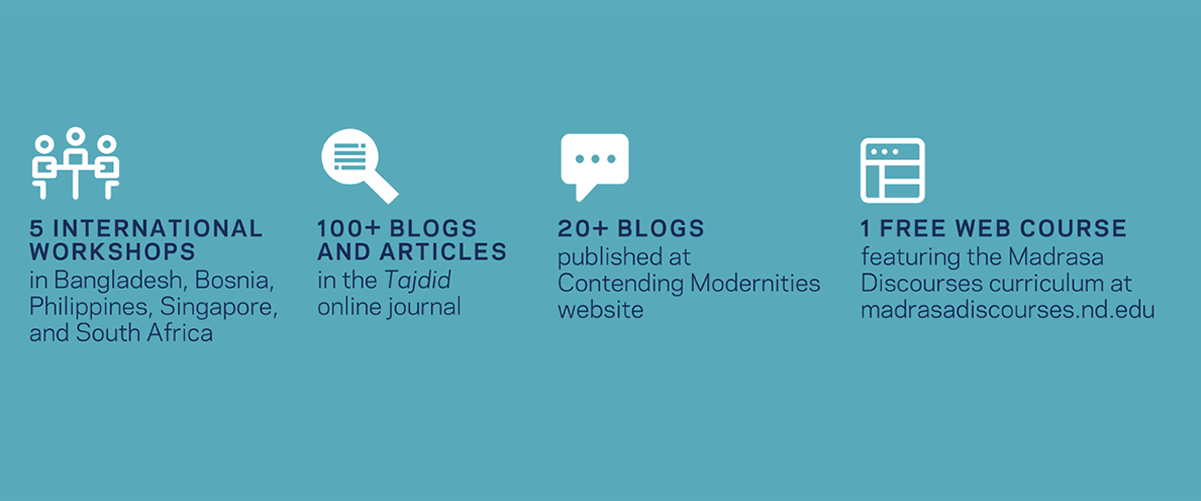
Intensive Coursework and Cross-Cultural Dialogue
 How do we privilege our beliefs over the beliefs of others? Is science today adding anything new to the conversation that could be a game-changer for theology? How do medical and technological innovations, like organ donation, or amortality, challenge our theological beliefs?
How do we privilege our beliefs over the beliefs of others? Is science today adding anything new to the conversation that could be a game-changer for theology? How do medical and technological innovations, like organ donation, or amortality, challenge our theological beliefs?
Our intensive three-year program equips Islamic scholars with the scientific and intercultural literacy to guide their communities through pressing questions of modernity. Read more about the course and our upcoming public and free curriculum here, or check out our free and open Madrasa Discourses curricular website here.
Students also participate in powerful intercultural experiences with Notre Dame undergraduates, engaging Christians and North Americans sometimes for the first time. See our blogs for more.
Why Madrasa Discourses?
Future Plans
The ʿulamāʾ play a powerful role in determining where Muslim faith communities stand in the juncture between tradition and modernity, plural coexistence and alienation. Madrasa Discourses is committed to strengthening the knowledge base and methodological capabilities of the next generation of Muslim religious leaders so they may stand tall for human dignity. We plan to continue our programming in South Asia and expand our work to the rapidly growing Muslim communities of Sub-Saharan Africa.
- Intensive training for select madrasa graduates across South Asia and Sub-Saharan Africa
- High-level academic formation for advanced Islamic Studies scholars
We are looking for partners to help us reach more students with our curriculum. Interested in supporting this initiative or learning more? Contact us.
